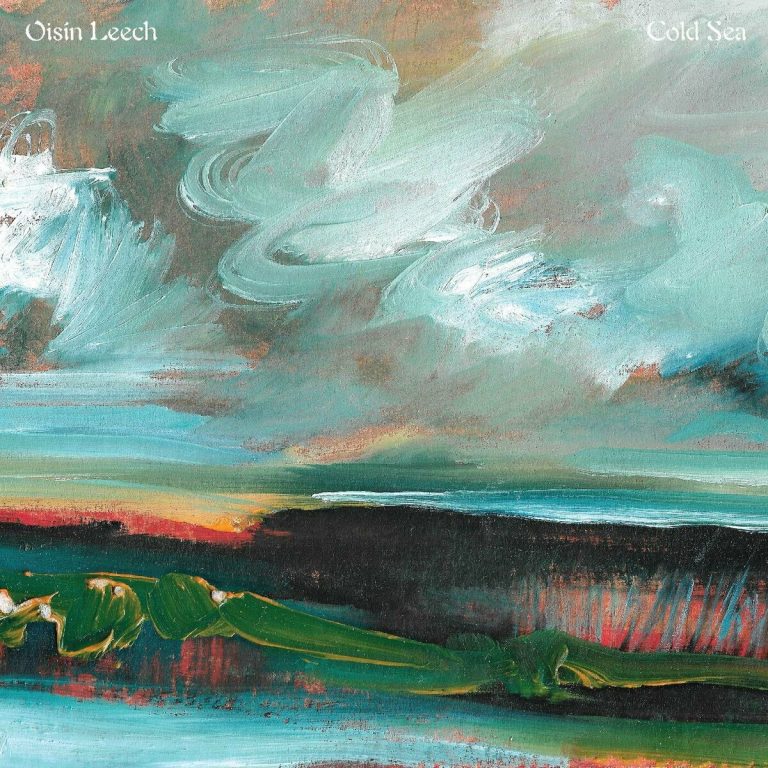The fireplace crackles. Two children are tucked up in bed upstairs. Outside, the world is quiet.
In the midst of lockdown Oisin Leech found some pause. One half of The Lost Brothers, the Irish songwriter sat with his guitar each evening after saying goodnight to his kids. He played with open tunings, writing small songs inspired by the poems of Seamus Heaney. As time passed, Leech realised over 40 songs had spilled out of him in the intimacy of his home. After bringing in noted guitarist and songwriter Steven Gunn, Leech whittled down his creations to a selected few, creating his debut album Cold Sea. It’s a record of hushed intimacy that draws in the windswept hills of the Irish countryside, the saltwater spray of the sea, and the homely intimacy of a man singing softly to himself in a quiet house.
For such a seasoned songwriter (The Lost Brothers have some seven records under their belt, all recorded in different locations), Cold Sea is remarkably gentle and sparse, coming off like the record of an unearthed shy folk singer brought from a small folk bar into the spotlight. That closeness still exists on record though: “Colour Of The Rain” sways gently over brushed acoustic guitar strums, like some outtake from Inside Llewyn Davis; “Malin Gales” sounds like an old folk song passed down from generation to generation; “Trawbreaga Bay”’s chimes like a traditional melody you’d hear amid the hush of pub patrons on a Sunday afternoon (it also fits that the song originally had an epic 20 verses that were pared down to a mere three come the album recording). Leech performs without much of any ego, singing with a softness that often retreats to let the guitar do the talking.
And he does let it talk, letting passages and tracks go by without a word from his lips. Gunn captures all the scratches of chord changes going up and down the fretboard, the microphone picking up all the trembling strings and ringing reverberations. The additional layers, though subdued and often unobtrusive, add a much-needed sonic wonder to the album. The glassy synths on opening track “October Sun” add a fragile delicacy while Bob Dylan bassist Tony Garnier adds a pillowy punctuation on “Colour Of The Rain”. Strings tenderly embrace “One Hill Further”; “You call it hiding / I call it sympathy,” Leech ruminates, mentioning tragedy in passing as he details a journey onwards.
While intimacy may be the defining and most handsome quality on Cold Sea, it also works against it in some regard. Passages drift by, like a background hum; Leech takes inspiration from the weather across the album, and his music becomes the blowing gale outside, the rain drizzling against a window, or the waves ebbing and flowing in the far off distance. Unless you cosy in right beside him, sometimes you forget he’s there.
Instrumentals like the closing track “Daylight” evoke the shimmer of sun after a storm, but if you’re not paying attention you may not even realise the record has ended. Meanwhile the brief “Maritime Radio” (complete with shipping forecast to accentuate the image of loneliness) evokes Black Eagle Child’s landmark Lobelia. They are pretty moments, and like much of the album, they have tiny hooks in the roots of Leech’s ancestry.
Recorded in an old schoolhouse in County Donegal, Leech and Gunn tread cautiously on Cold Sea, respectful and careful. From the fireplace side to the world’s ear, Leech still plays like the kids are sleeping upstairs. There may even be a storm whipping up outside, but still, Oisin Leech is hunkering down and singing softly.

